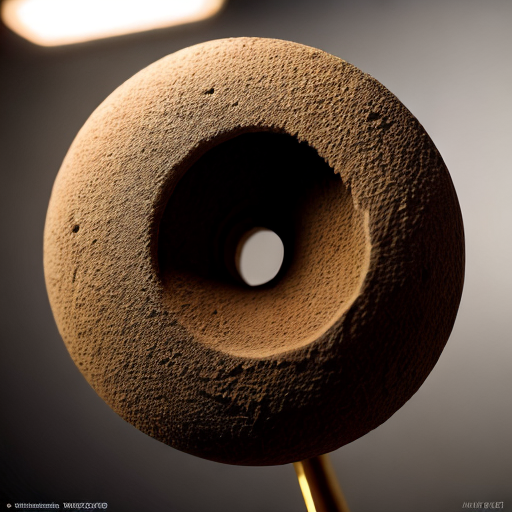Unearthing the Past: An Introduction to Archaeology in History
Unearthing the Past: An Introduction to Archaeology in History delves into the fascinating world of uncovering ancient civilizations and piecing together the stories of our ancestors. Archaeology in history is the study of human activity through the excavation and analysis of material culture, such as artifacts, structures, and landscapes. By examining these remnants of the past, archaeologists can reconstruct the daily lives, beliefs, and customs of past societies, shedding light on how they lived, interacted, and evolved over time. Through careful excavation and meticulous analysis, archaeology in history allows us to connect with our shared human heritage and gain a deeper understanding of the world that came before us.
Delving into the Depths: The Methods and Techniques of Archaeology
Archaeology, often referred to as the 'science of the past,' is not just about digging up ancient artifacts and studying ruins. It is a multidisciplinary field that combines elements of anthropology, history, geology, and even forensics to reconstruct and understand the lives of past civilizations. By analyzing material remains such as pottery, tools, bones, and even ancient DNA, archaeologists can uncover fascinating details about ancient societies, their daily lives, cultural practices, and even their interactions with other civilizations. This meticulous detective work allows us to piece together the puzzle of human history and gain insights into the diverse and complex tapestry of our shared past.
Delving into the Depths: The Methods and Techniques of Archaeology explores the intricate processes involved in uncovering and interpreting the remnants of past civilizations. Archaeology in history encompasses a wide range of methods, including excavation, surveying, dating techniques, and analysis of artifacts. Through these methods, archaeologists are able to piece together the puzzle of human history, revealing insights into ancient societies, their technologies, and their interactions with the environment. By meticulously documenting and analyzing archaeological finds, researchers can reconstruct the past and gain a deeper understanding of the cultural, social, and economic dynamics that shaped our world.
Piecing Together the Puzzle: The Role of Archaeology in Understanding Ancient Civilizations

Piecing Together the Puzzle: The Role of Archaeology in Understanding Ancient Civilizations delves into the crucial role that archaeology plays in unraveling the mysteries of past societies. Archaeology in history serves as a window into the lives of ancient civilizations, allowing us to explore their customs, technologies, and belief systems. By carefully excavating and analyzing artifacts, structures, and other material remains, archaeologists can reconstruct the daily lives and interactions of these ancient peoples. Through this process, we gain valuable insights into the social, political, and economic structures that shaped these civilizations, providing a deeper understanding of our shared human heritage.
One of the key aspects of archaeology in history is its ability to challenge and revise our understanding of the past. By uncovering new evidence and reinterpreting existing data, archaeologists can shed light on previously unknown aspects of ancient civilizations. This process of discovery and reinterpretation helps to refine our knowledge of history and challenge preconceived notions about the past. Through the rigorous application of scientific methods and critical analysis, archaeologists are able to piece together a more accurate and nuanced picture of ancient societies, enriching our understanding of the complexities of human history.
Archaeology in history also plays a vital role in preserving and protecting our cultural heritage. By studying and documenting archaeological sites, researchers can ensure the conservation of valuable historical resources for future generations. Through the careful management and interpretation of these sites, archaeologists can help to safeguard our cultural legacy and promote a greater appreciation for the rich tapestry of human history. Additionally, archaeology can serve as a tool for fostering cultural understanding and promoting dialogue between different communities, highlighting the interconnectedness of human societies throughout time.
In conclusion, archaeology in history serves as a powerful tool for exploring the past, uncovering hidden stories, and preserving our cultural heritage. Through the meticulous study of material remains and the application of scientific methods, archaeologists are able to piece together the puzzle of ancient civilizations, providing valuable insights into the complexities of human history. By challenging existing narratives, preserving historical sites, and promoting cultural understanding, archaeology continues to play a vital role in shaping our understanding of the past and connecting us to our shared human heritage.
Beyond the Dig: The Significance of Archaeology in Shaping Our Understanding of History
Fun fact: Did you know that the world's oldest known archaeological site is in Africa? The site, known as the Olduvai Gorge, is located in Tanzania and has provided valuable insights into human evolution. Excavations at this site have uncovered ancient stone tools and the remains of early hominids, including the famous fossilized skeleton of 'Lucy,' a 3.2 million-year-old Australopithecus afarensis. Archaeologists continue to explore this remarkable site, shedding light on our ancient past and rewriting the history books!
Beyond the Dig: The Significance of Archaeology in Shaping Our Understanding of History extends far beyond the physical act of excavation. Archaeology in history serves as a critical tool for uncovering the hidden narratives of the past and challenging our preconceptions about ancient civilizations. By analyzing artifacts, structures, and landscapes, archaeologists are able to piece together a more comprehensive and nuanced picture of human history, illuminating the social, cultural, and economic dynamics that have shaped our world. Through its interdisciplinary approach and focus on empirical evidence, archaeology provides valuable insights into the complexities of the past, enriching our understanding of the diverse societies that have come before us.

